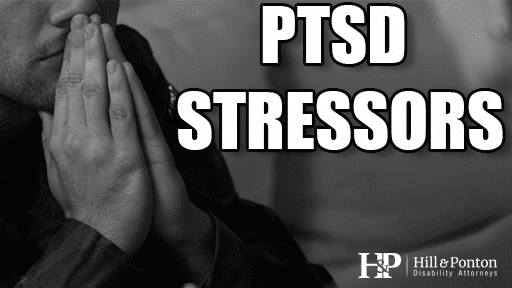Service Connection
Schizophrenia is an unusual disease in presentation, as it often does not manifest until late adolescence or early adulthood. This coincides with the age many veterans join the military. There are many complications when it comes to schizophrenia and schizoaffective disorders that may complicate attempts to get your disability connected to your time in service.
If your first “break” occurred during service, it’s doubtful that you’re having too much trouble getting it service connected. However, while the average age of the first psychotic episode typically ranges from 16-25 years old, many do not have psychotic symptoms until even later. This is especially true for women, whose average age is 25 (average age of onset in males is 18,) and may not develop psychotic symptoms until after 30 years of age! So it is easy for the VA to deny service connection if your first diagnosis was several or many years after service. The key to winning a case like this may be what’s known as “prodromal” symptoms-symptoms of schizophrenia that occur before the first onset of psychosis.
Prodromal symptoms of schizophrenia often go unnoticed, and even when noticed, they are often diagnosed as something else. These symptoms can include:
- Depression
- Anxiety
- Social withdrawal and isolation, other social problems
- Problems with thinking, memory, and attention
- Problems functioning in school or occupation
- Unusual thoughts and behaviors
- Speech disturbances
- Low stress tolerance
- Loss of energy
Looking at this list, we can see how many veterans with schizophrenia could have easily been diagnosed with personality disorders or mood disorders and discharged, or were discharged for poor performance and/or “unsuitability.” Many vets struggling with the above symptoms may have been discharged for alcohol and/or drug abuse, due to self-medication. These symptoms can persist for years before receiving a schizophrenia diagnosis, and it’s likely the VA will deny these veterans service connection, as the diagnosis wasn’t made in service or directly after service.
The key to service is to ask your doctor to write a letter to the VA, detailing the severity of your current symptoms, as well as describing how your symptoms during service were the first manifestation of your disability. If you were reprimanded during service for poor performance, if your evals were low, if you failed an A school, these could be prodromal symptoms.
Secondary Disabilities
Anxiety and Depression
Schizophrenics experience depression often, and the depression can be quite severe. Depression in schizophrenics is typically more severe than in the general population, as schizophrenics tend to be much more socially isolated, both because their behavior can push others away at times, as well as their paranoia, which tends to make them more isolated. The suicide rate for schizophrenics is much, much greater than for depression, with up to 40% of schizophrenics attempting suicide during their lifetimes.
Anyone who has read part one of this series already understands how anxiety is extremely common in schizophrenics.
Smoking
There is a greatly increased rate of smoking in the schizophrenic population, with 80% of schizophrenia sufferers smoking versus around 20% in the general population. Several theories have been proposed, including smoking as a coping mechanism, that nicotine may affect the brain in such a way that it lessens the severity of auditory hallucinations, or that schizophrenics possess a higher number of nicotine receptors than those without the illness. It could be argued that disabilities caused by smoking, such as lung cancer, may be secondary to a service-connected psychotic disorder.
Substance abuse
Drug and alcohol abuse is extremely common in schizophrenics, with around 50% of schizophrenics suffering from a substance abuse disorder. These addictions can have disastrous consequences for your health.
Diabetes and Obesity
Schizophrenics are extremely prone to obesity. Symptoms often result in poor diet and lack of exercise, and many antipsychotic medications cause obesity, with up to 72% of patients on antipsychotics becoming obese. This obviously greatly increases the chances of developing diabetes mellitus in schizophrenics, with a 3 to 4-fold increase in diabetes in those with schizophrenia! Diabetes, of course, can cause a whole host of secondary disabilities on its own.
Cardiovascular Problems
Schizophrenics are two to three times more likely to suffer from cardiovascular disease, due to the increased rate of obesity, depression, anxiety, and poor self-care.
Other problems
There are too many secondary problems to list in this blog post. From hepatitis to cancers, nearly any common illness occurs more frequently in schizophrenics than the general population. For more information on schizophrenia and physical illness, please see this research article.



